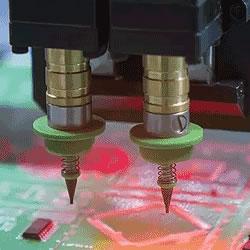Surgical Robotics Transforming the Smart Healthcare
Robotics technology brings several benefits for both patients and surgeons. It allows for precise and real-time movement of the instruments and unparalleled view of the area under surgery. Each instrument in the system performs a certain task - clamping, cutting, dissecting, and suturing. The robot offers multiple advantages such as reduction of post-operative pain, shortened hospital stays, earlier patient mobility and faster recovery.
The field of surgery is witnessing a period of great change due to the recent phenomenal advances in surgical and computer technology. Robotic surgery is a new revolution in the space and one of the most popular topics of discussion in surgery today. The field is taking off as it is enhancing surgery by fostering improved precision, stability, and dexterity. The most well-known surgical robot, the Intuitive Surgical da Vinci robot is designed to improve clinical outcomes of patients through minimally invasive surgery. Surgical robots find application in many surgical specialties. For instance, in neurosurgery, image-guided robots help examine brain lesions without causing any major damage to the adjacent tissue. In orthopedic surgery, robots are used to shape the femur to precisely fit prosthetic hip joint replacements. Robots also find use in urology surgery, gynecology surgery, general surgery, and other surgeries.
The robotic surgery market has been making great waves since the 1980s. This growth is attributed to the growing demand for automation in the healthcare industry, the greater focus towards advanced robotic surgeries, the rising incidence rates of gynecological, neurological and other disorders, and the benefits offered by robots in surgeries. As per the report by Allied Market Research, the global surgical robotics market is likely to reach $98,737.0 million by 2024, growing at a CAGR of 8.5% from 2017 to 2024. Several companies in the space are looking at innovation to improve surgical efficiency and extend their penetration in the market. In June 2018, Restoration Robotics, Inc., a leading robotic hair restoration company launched the education Master Class Series for its ARTAS Robotic Hair Restoration System which allows physicians to provide exceptional results to male aesthetic patients. In April 2018, the Vanderbilt University Medical Center, a medical provider based in Nashville, Tennessee added a new tool to its collection of minimally invasive procedures to offer patients the most advanced robotic-assisted surgical procedures. In January 2018, Henry Ford Allegiance Health, a Jackson-based medical center announced its introduction of the ExcelciusGPS surgical system that provides minimally invasive spine surgery to patients.
Restoration Robotics Education Master Class Series
Restoration Robotics, Inc. recently introduced a continuing education Master Class Series for its ARTAS Robotic Hair Restoration System with the aim of educating physicians on best practices and the recent techniques for this cutting-edge technology. The Master Class Series helps them provide great results to male aesthetic patients. The ARTAS Hair Transplant System is the first robotic system in the world designed to help surgeons in hair restoration techniques. According to Ryan Rhodes, President, and CEO of Restoration Robotics, the Master Class Series is designed to support and advance their physicians knowledge in using the ARTAS Robotic System and improving the patient experience.
Vanderbilt University Medical Center Enhances its Portfolio
With the aim of offering the most advanced robotic-assisted surgical procedures to patients, Vanderbilt University Medical Center added a new product to its collection of minimally invasive techniques. Thoracic surgery is the latest specialty at the medical center to adopt the latest version of the robot - the da Vinci Xi which allows surgeons to carry out complex procedures using a few small incisions.
Erin Gillaspie, MD, assistant professor of Thoracic Surgery at Vanderbilt said, "I was absolutely amazed at the ease of performing surgery with the robot. This technology is outstanding for the type of surgeries we are doing. It is extraordinary how meticulously we can do these cases with the robot. The robotic instruments we use have 7 degrees of freedom and 90 degrees of articulation, which is basically like having miniaturized hands inside the patients body. Every move I make is mirrored by the robot."
Henry Ford Allegiance Health Introduces New Surgical System
Henry Ford Allegiance Health announced that its the first in Michigan to offer patients the ExcelciusGPS surgical system. Offering minimally invasive spine surgery, the technology fosters increased safety for patients and accuracy for surgeons. The incorporation of a GPS 3-D guidance system in the system improves accuracy and optimizes patient care by integrating robotics with navigation. The technology enables a neurosurgeon to place screws and implants precisely while seeing exactly where to place instruments in real-time. The ExcelciusGPS allows for safer, more consistent, and smaller incisions, leading to better healing and lessen scarring. "Robot-assisted surgery is a new, emerging area that will become the standard in care," says Dr. Frank La Marca, a Henry Ford Allegiance Health neurosurgeon. "We are excited to offer our patients the advantages of the Excelcius system, which allows us to perform minimally invasive procedures which may result in less blood loss, less muscle damage, and a potentially faster recovery," he added.
Featured Product

